This semester one of the class projects was to image Jupiter, Saturn, the Moon, and also the Sun. Compared to most deep sky objects, planetary bodies like these are so bright that long exposures are not needed to gather enough light to see them. However, even over a few seconds, turbulence in the atmosphere can blur such images quite severely. Because of this, a different technique called 'lucky imaging' is used. This involves recording a video of what is seen through the telescope, with each short frame of the video acting as a separate image. Over the course a few minutes, many thousands of such frames can be recorded and the odds are that at least some of these will be minimally affected (hence the term 'lucky' imaging). Processing software then selects the clearest of all the recorded frames and these are then stacked together and processed to bring out the desired features
Click on the thumbnails below and scroll down to see larger versions of the final images that were created from our lucky imaging sessions. (All students in the class collaborated in recording the videos from which these images were created. Individual attributions refer only to post-processing.)
The movies from which these images were created were recorded using a dedicated solar H-alpha telescope. The etalon filters on this telescope let only one particular color pass, corresponding to the wavelength of light emitted by excited hydrogen atoms. This wavelength is called H-alpha, and fine tuning of th filters allows us to see interesting features on the surface of the Sun, as well as prominences around its rim.
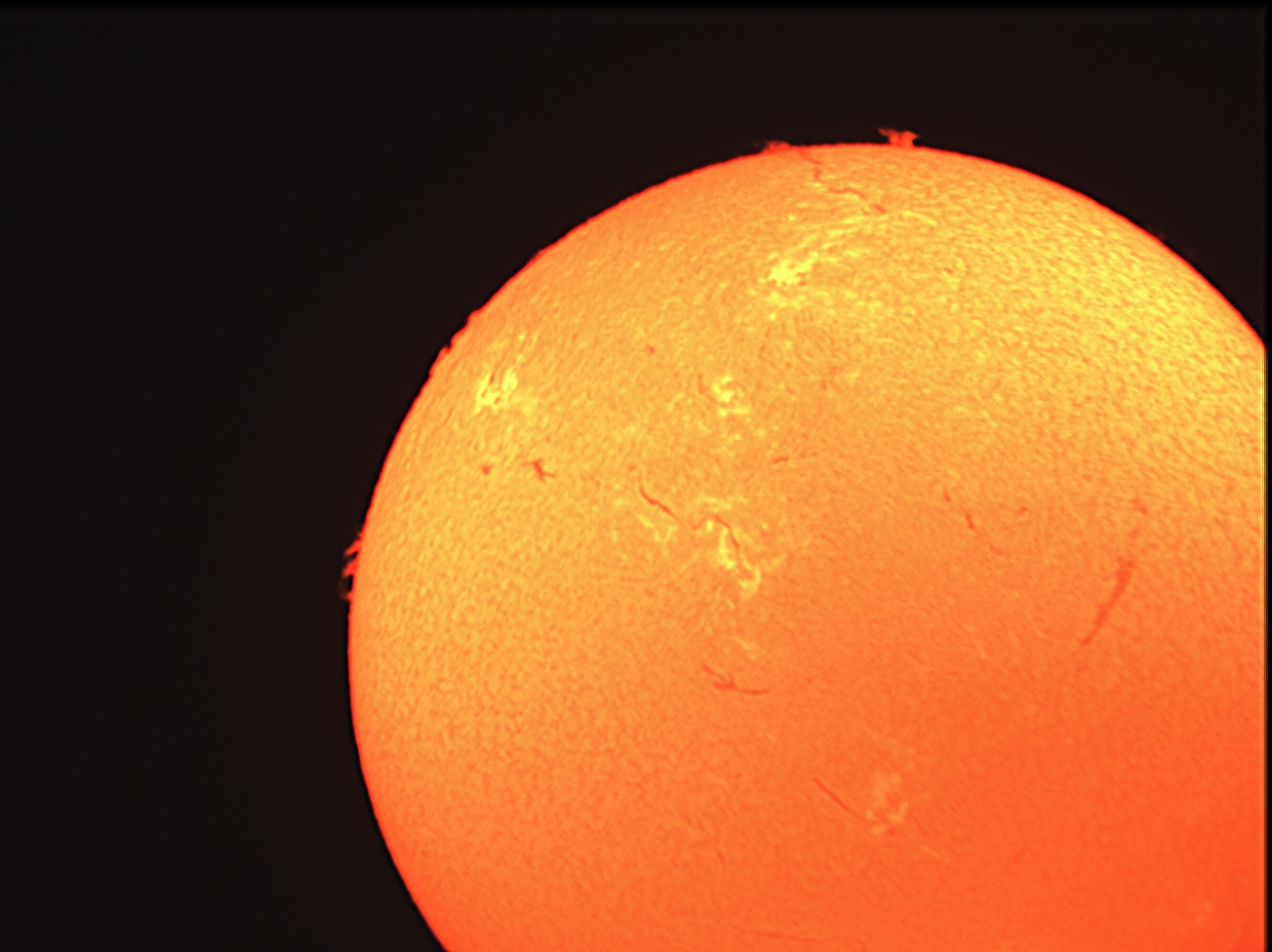
Sun in H-alpha light #1
(Theo Kline)
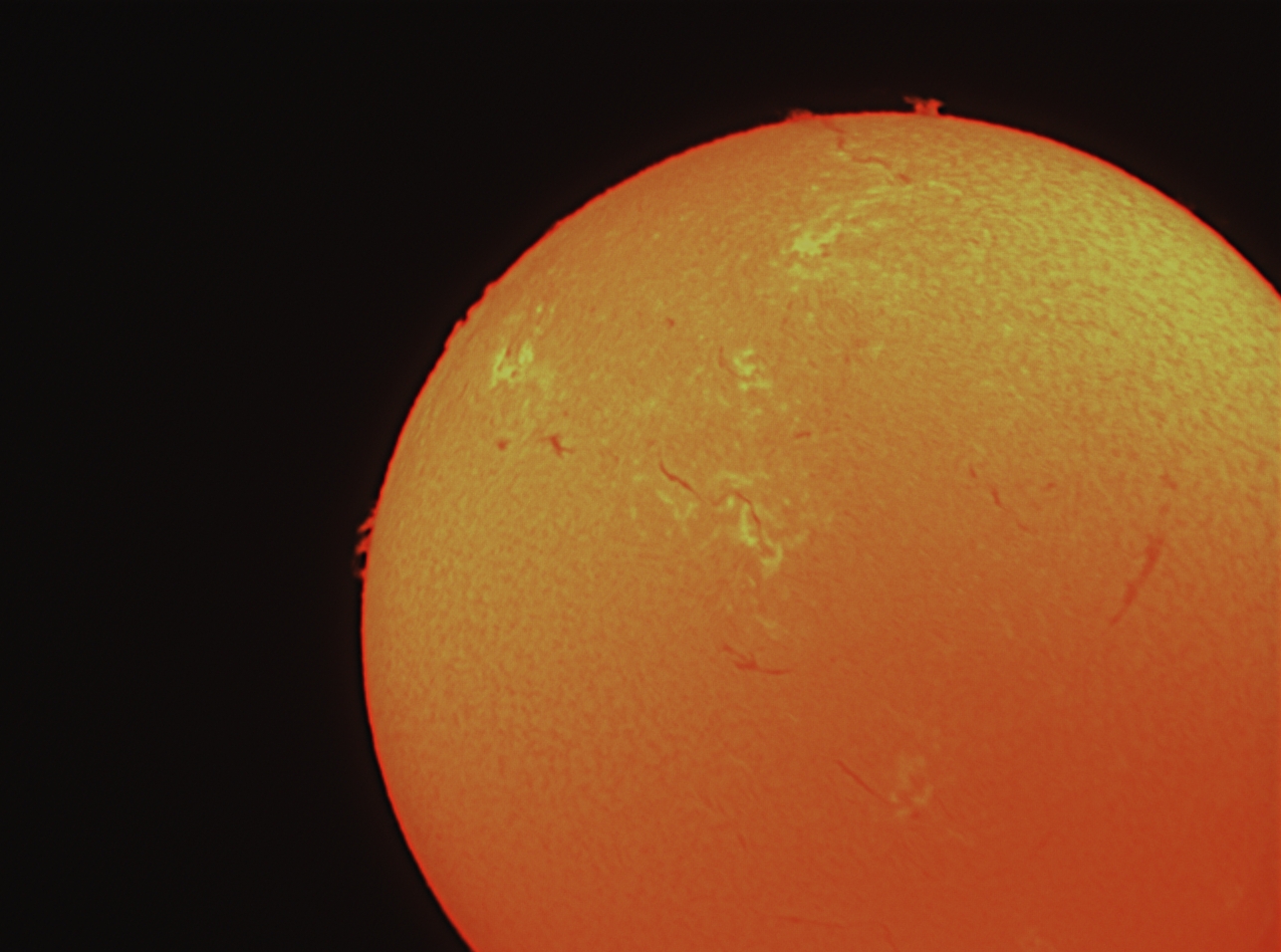
Sun in H-alpha light #2
(Connor Burnett)
Instructor note: Unfortunately our night planetary imaging session this semester was seriously affected by heavy cloud cover, and we only managed to get a few movies through some breaks in the clouds. The students did the best they could with this limited data, but there was still a lot of atmospheric interference that significantly degraded the image quality.
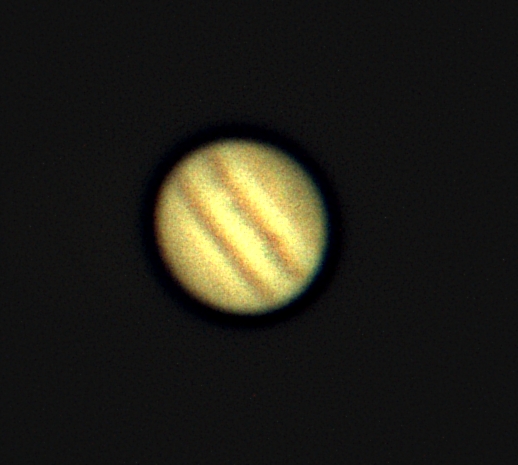
Jupiter
(Joel Watson)
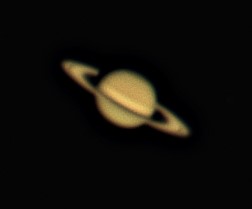
Saturn
(Alyssa Mannen)
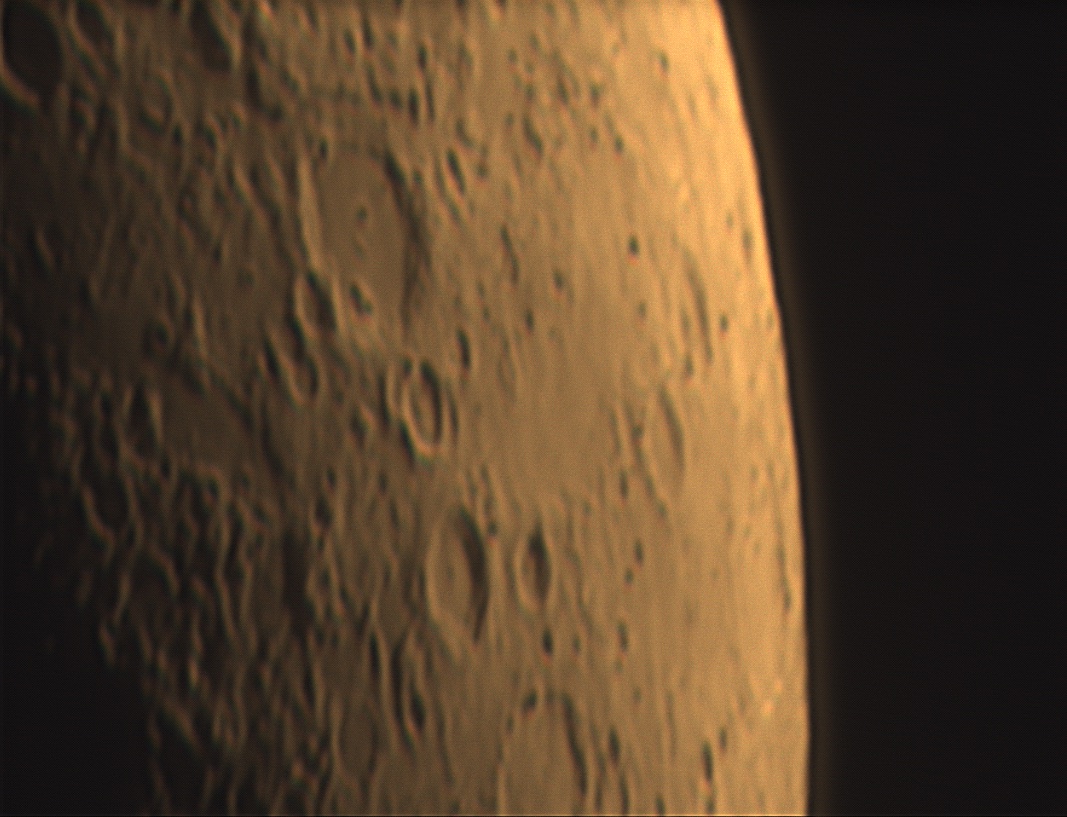
Moon
(Sam Shumpert)
© Copyright © 2023.Tennessee Tech all rights reserved